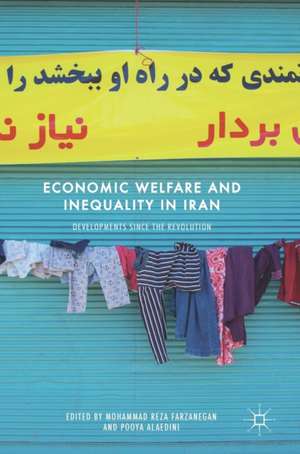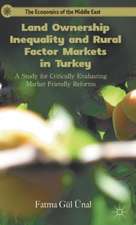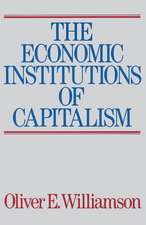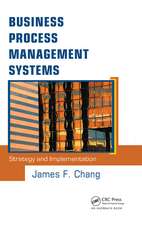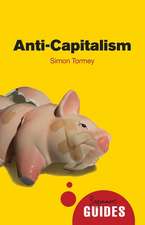Economic Welfare and Inequality in Iran: Developments since the Revolution
Editat de Mohammad Reza Farzanegan, Pooya Alaedinien Limba Engleză Hardback – 20 dec 2016
| Toate formatele și edițiile | Preț | Express |
|---|---|---|
| Paperback (1) | 717.50 lei 6-8 săpt. | |
| Palgrave Macmillan US – 4 iul 2018 | 717.50 lei 6-8 săpt. | |
| Hardback (1) | 721.78 lei 6-8 săpt. | |
| Palgrave Macmillan US – 20 dec 2016 | 721.78 lei 6-8 săpt. |
Preț: 721.78 lei
Preț vechi: 880.22 lei
-18% Nou
Puncte Express: 1083
Preț estimativ în valută:
138.18€ • 144.17$ • 115.83£
138.18€ • 144.17$ • 115.83£
Carte tipărită la comandă
Livrare economică 12-26 martie
Preluare comenzi: 021 569.72.76
Specificații
ISBN-13: 9781349950249
ISBN-10: 1349950246
Pagini: 196
Ilustrații: XVI, 237 p. 39 illus., 4 illus. in color.
Dimensiuni: 148 x 210 x 23 mm
Greutate: 0.43 kg
Ediția:1st ed. 2016
Editura: Palgrave Macmillan US
Colecția Palgrave Macmillan
Locul publicării:New York, United States
ISBN-10: 1349950246
Pagini: 196
Ilustrații: XVI, 237 p. 39 illus., 4 illus. in color.
Dimensiuni: 148 x 210 x 23 mm
Greutate: 0.43 kg
Ediția:1st ed. 2016
Editura: Palgrave Macmillan US
Colecția Palgrave Macmillan
Locul publicării:New York, United States
Cuprins
1. Iran's Post-revolutionary Social Justice Agenda and Its Outcomes: Evolution and Determinants of Income Distribution and Middle-Class Size.- 2. Poverty, Inequality, and Income Mobility in Iran: A Pseudo-Panel Approach.- 3. Oil rents, Political Institutions, and Income Inequality in Iran.- 4. Housing Costs and Inequality in Post-Revolutionary Iran.- 5. Gender Inequality and Income Inequality in Iran.- 6. Aging and Gender Inequality in Contemporary Iran.- 7. Effect of Oil Sanctions on Household Welfare in Iran: New Evidence from a CGE Model.- 8. Household Welfare in Iran under Banking Sanctions: From Open Economy toward Autarchy.
Notă biografică
Mohammad Reza Farzanegan is Professor of Economics of the Middle East at the Center for Near and Middle Eastern Studies, Philipps-Universität Marburg, Germany. He is affiliated with MACIE (Marburg), CESifo (Munich) and ERF (Cairo). His recent publications have appeared in the Journal of Peace Research, International Tax and Public Finance, and World Development.
Pooya Alaedini is Associate Professor at the Department of Social Planning, University of Tehran, Iran. He has served as an international development consultant for UN agencies, the World Bank, and national organizations. His research has focused on major urban, regional, and social disparity issues as well as evaluation of development programs.
Contributors
Hamid Reza Ashrafzadeh, Institute for Trade Studies and Research, Iran
Mitra Babapour, Freelance Researcher, Iran
Nadereh Chamlou,International Development Adviser, USA
Sajjad Faraji Dizaji, Tarbiat Modares University, Iran
Hassan F. Gholipour, Swinburne University of Technology, Australia
Mohamad Mohammadi Khabbazan, University of Hamburg, GermanyMajid Koosheshi, University of Tehran, Iran
Jeremy Nguyen, Swinburne University of Technology, Australia
Hossein Raghfar, Alzahra University, Iran
Hossein Sadeghi, Tarbiat Modares University, Iran
Textul de pe ultima copertă
This book examines economic inequality and social disparity in Iran, together with their drivers, over the past four decades. During this period, income distribution and economic welfare were affected by the 1979 Revolution, the eight-year war with Iraq, post-war privatization and economic liberalization initiatives carried out under the Rafsanjani and Khatami administrations, the ascendance of a populist economic platform under the Ahmadinejad administration, and the lifting of energy and financial sanctions under the Rouhani administration. Featuring a mix of scholars, including Iranian academics who experienced these changes and are publishing in English for the first time, this collection offers quantitative and descriptive studies of the country's post-revolutionary economic development and disparities. In most chapters, a hypothesis is developed from existing theories or observations, which is then tested using available data. This unique combination of new voices, academic as well as personal experiences, and scientific methods will be a valuable addition to the library of the scholars of modern Iran’s economy and society.
Caracteristici
Addresses social justice and policy issues from natural resources to aging Combines scientific methods with the qualitative experiences of Iranian academics who lived through great changes Features several authors publishing in English for the first time
